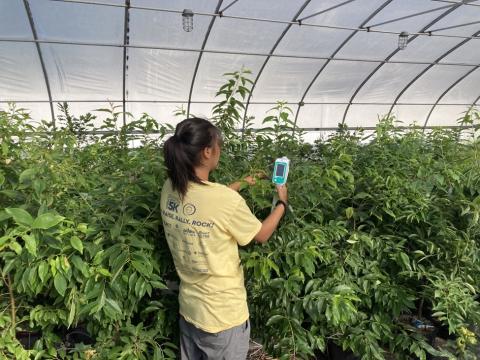Assisted Migration: A Viable Silvicultural Technique for Facilitating Adaptation of Northern Forest Tree Species to a Warmer and Drier Future World

Greater frequency and intensity of drought in the Northern Forest region will likely impact survival, growth, and reproduction of different tree species under future climate conditions. At the same time, the rate at which climate is changing in the region is outpacing tree species’ ability to migrate into future suitable habitats. Both of these phenomena threaten sustainability of the region’s forest ecosystems and communities. Forestry assisted migration, the intentional movement of climate-adapted tree species into anticipated future suitable areas outside their current range, may be a useful silvicultural tool for promoting future resilient forests.
NSRC researchers and local stakeholders in the four-state region will evaluate the capacity of ten assisted migration tree species to acclimate to new environments and drought in a periodically drier, warmer future Northern Forest. They will also quantify how morphological, anatomical, and physiological tree species traits show plasticity, or flexibility, to handle drought and the potential for particular traits to be indicators of seedling success.
The research builds on an existing project, Adaptive Silviculture for Climate Change (ASCC), which initiated an assisted migration experiment across a network of seven sites throughout the Northern Forest. At the main study site, Second College Grant in New Hampshire, researchers will conduct a drought experiment to assess seedling acclimation potential and trait plasticity. Measurements will be collected at the other six ASCC sites to evaluate seedling responses across broader temperature and precipitation gradients at the landscape scale. The results will inform guidelines for selecting suitable assisted migration species as part of climate change adaptation strategies to promote future resilient forests.
